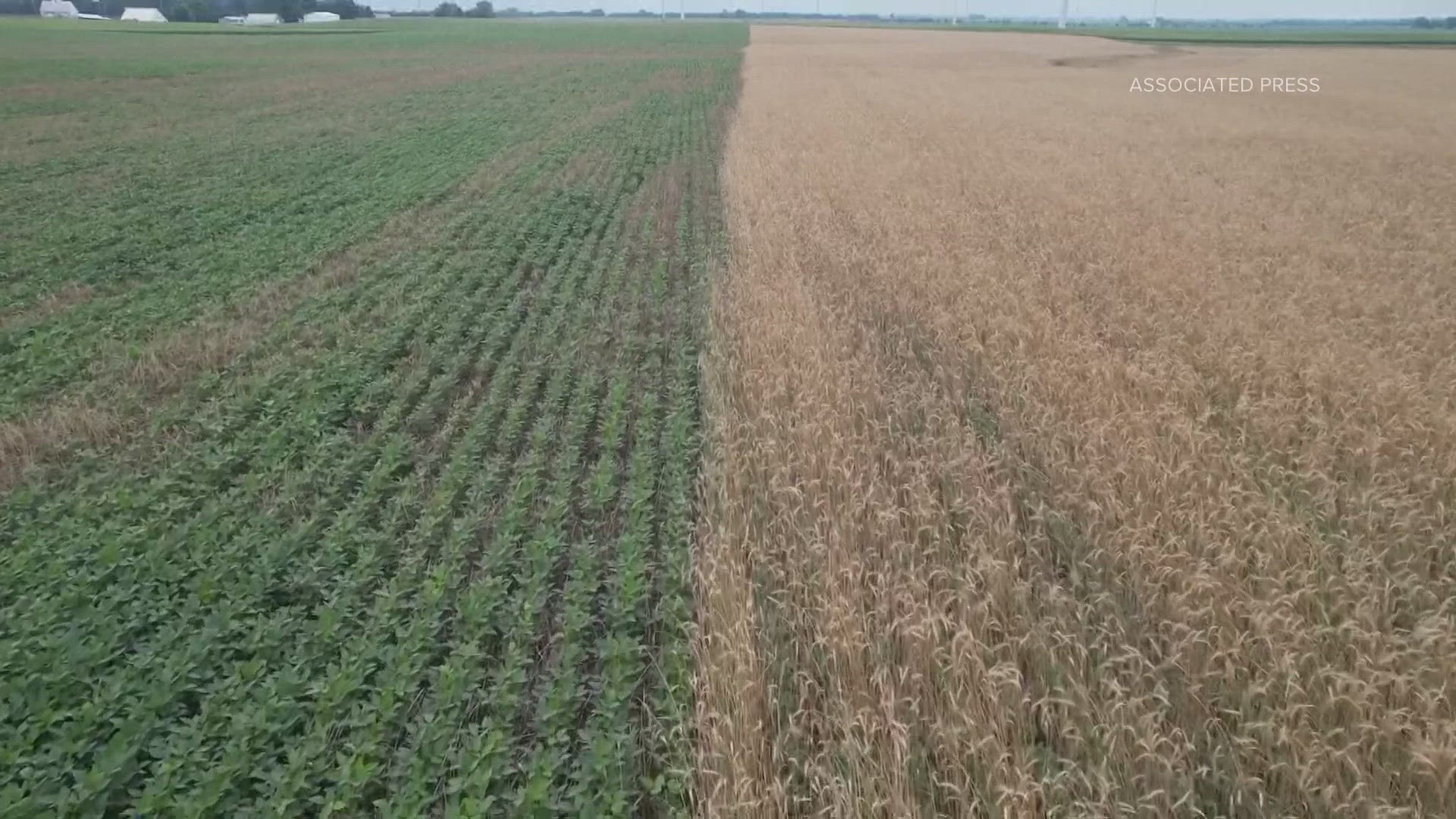COLORADO, USA — The goal of the U.S. government is to reach net-zero carbon dioxide emissions by the year 2050.
That will mean removing carbon dioxide from the atmosphere and finding ways to store at least a billion tons of carbon every year. It's a lot of carbon to store, but it can be done.
Researchers at Colorado State University (CSU) said farms will play a key role in storing the carbon dioxide. Across the globe, about 25% of the net greenhouse gas emissions are associated with land use activities like farming.
Just think about all that methane from all that manure. New research shows farms can also help reduce those greenhouse gases in our atmosphere by storing carbon dioxide.
"The way we do that is by... changing our cropping systems," said Keith Paustian, who is a leading expert in land use and greenhouse gas emissions and a soil and crop specialist at CSU.
Paustian calls cropland a carbon sink. Worldwide, crops can store over a billion tons of carbon dioxide annually.
To understand how that works, all it takes is a quick trip back to elementary school and a brush-up on photosynthesis.
In short, plants take in carbon dioxide and produce oxygen. That carbon is then sequestered in the soils beneath those plants.
"We take some of that carbon and incorporate it into soils and organic matter," said Paustian. "Most people don't realize that soils contain... much more carbon than the biomass above ground."
In other words, farmers can absorb more carbon dioxide by simply planting more plants.
"We can do that, for example, by growing cover crops instead of leaving the ground fallow during the wintertime," said Paustian.
Farmers should plant crops that can grow in the fall and spring. They can also plow less so carbon doesn't escape the soil. There's also a bonus to doing all this. Storing carbon in soils also makes them perform better.
"It makes the soils more fertile, more productive," said Paustian. "So it's kind of a win-win."
Paustian also encouraged consumers to make the choice to buy from carbon-storing farmers. That will give farmers an incentive to change their practices.
SUGGESTED VIDEOS: Colorado Climate

